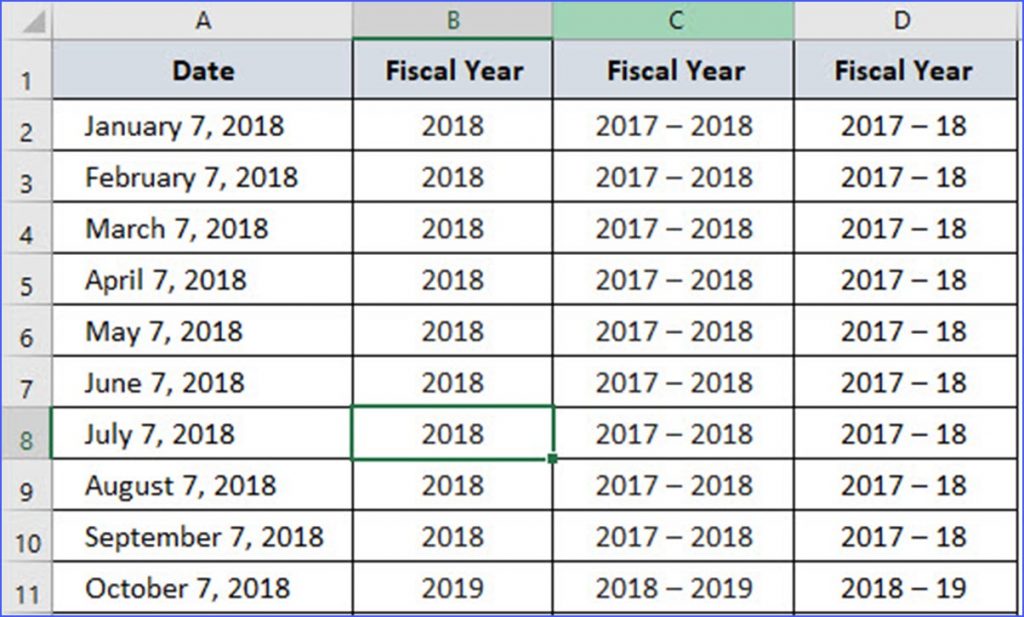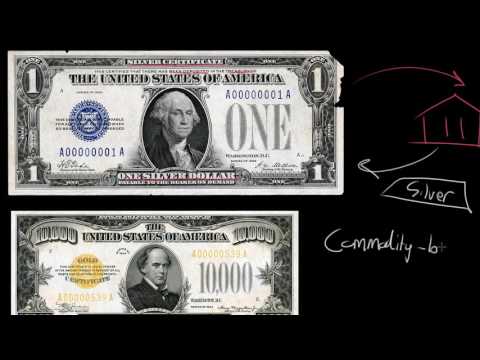Difference between Managing Director and Whole Time Director
Contents:


It should be the duty of the difference between chairman and managing director to disclose his age correctly. 7.2 In case of a public company, appointment of directors beyond a prescribed age say 70 years, should be subject to a special resolution by the shareholders which should also prescribe his term. Continuation of a director above the age of 70 years, beyond such term, should be subject to a fresh resolution. Listed entities were initially required to separate the roles of chairperson and managing director or chief executive officer from April 01, 2020 onwards. Managing directors play a significant role in the company’s management and are responsible for its expansion, profitable growth and innovation.
Managing Director is the top director of a company who is entrusted with substantial powers to manage the company. The Board of Directors of the company always have a supervisory role over Managing Director. There may be one or more Managing Directors in large companies. The Companies Act does not provide for any definition for the term ‘General Manager’.
Episode 5: Energy transition today – GZERO Media
Episode 5: Energy transition today.
Posted: Thu, 04 May 2023 11:00:51 GMT [source]
The Managing Director controls the day-to-day operation of a business and the managing director has to work closely with the CEO. The ultimate result is that both the CEO and Managing Director have to report to the board of directors. A company cannot appoint or employ a managing director and a manager simultaneously. A managing director cannot hold the office of a director in more than 20 companies, including alternate directorship. The appointed managing director and the company in which he/she is appointed should confirm the same with the ROC.
Advantages & Disadvantages of Managing Director
Thus, they bring calibre, unbiased, objectivity and qualities to the board. Thus, it can be seen that the role performed by a CEO/MD is inherently different from that of the chairman. While a CEO’s focus remains on the smooth functioning of the business of the company so as to make maximum profits, the chairman’s role is to responsibly regulate the governance of the board of directors, the meetings and the committees. As per the Companies Act, 2013 , a CEO means an officer of a company, who has been designated as such by it. Whereas, a managing director, essentially, is a director entrusted with substantial powers of management of the affairs of the company and includes a director occupying the position of managing director, by whatever name called.
25.1 The requirement of the Companies Act, 1956, to hold a meeting every three months and at-least 4 meetings in a year should continue. The gap between two Board Meetings should not exceed four months. 25.2 The Committee is of the view that law should facilitate use of technology to carry out statutory processes efficiently. Meetings of the Board of Directors by electronic means to be allowed and directors who participate through electronic means should be counted for attendance and form part of Quorum. The liability of compliance has to be seen in context of the common law framework prevalent in the country along with a wide variety of ownership structures including family run or controlled or otherwise closely held companies. Re-appointment of a managing director can be done for another term.
They can provide mentorship and guidance to other employees, which can help to create a positive work environment and promote employee engagement. Limited job security, as a Managing Director can be replaced if the company is not performing well. Risk of reputational damage if the company faces negative publicity. Opportunities to network and build relationships with key industry leaders.

Give due attention to consumer satisfaction which is ensured by the continued supply of goods and services to the market. Maintain a balanced relationship between line and staff managers. The copies of the aforesaid notices along with a certificate by the company signifying due publication thereof shall be attached to the application. The company shall give general notice to the members of the company detailing the nature of the application to be made.
The University of Chicago Booth School of Business
Decision on how to remunerate directors should be left to the Company. However this should be transparent and based on principles that ensure fairness, reasonableness and accountability. 13.2 It is important that there should be a clear relationship between responsibility and performance vis-à-vis remuneration, and that the policy underlying Directors’ remuneration be articulated, disclosed and understood by investors/ stakeholders.
The Committee felt that this was an aspect of good Corporate Governance which may be adopted by companies on voluntary basis by making a provision in the Article of Association of the company. In view of the issues related with enforcing compliance of such requirements, there need not be any specific legal provision for the purpose. This is not a Government run Website and the form is not the actual registration form, it is just to collect information from our clients so that our expert can easily understand their business or needs.
UCLA Accelerated Management Program (UCLA AMP)
The person had been or is sentenced by a court and convicted for more than six months. When the person is an undischarged bankrupt or has been adjudged as an insolvent. Save taxes with Clear by investing in tax saving mutual funds online.
They are supposed to have a broader oversight and help take independent unbiased decisions. They are independent of the company’s management and interested parties. “It is important to ensure that when listed entities disclose material information related to the impact of Covid-19, they should not resort to selective disclosures, keeping in mind the principles governing disclosures,” he added. Such disclosures should include the impact of Covid-19 on business, performance and financials, he added. The OECD, the international standard setter for corporate governance, also recommends that the two posts should be separated as a good governance practice. Both positions may be held by an individual or multiple people within the company.
- So, despite differences, both CEO and Managing Director actually work for the prosperity of the company.
- The Berkeley Executive Program in Management is a general management program that prepares you for the next level of leadership.
- 11.2 The term ‘material’ needs to be defined in terms of percentage.
To review and present the operations of the company to the Board periodically accounts and statistics showing the progress and the present position of the company. Act as the intermediary officer between the organization and the Board of Directors. Who takes up the position of the managing director even without being designated as such would also be deemed to be a managing director.
Our experts suggest the best funds and you can get high returns by investing directly or through SIP. Download Black by ClearTax App to file returns from your mobile phone. CAs, experts and businesses can get GST ready with Clear GST software & certification course.
However, it observed that if an MD or an Executive Director or the person who has been looking after the day today affairs of the company acts as a chairman, i.e. in a dual capacity, he ipso facto becomes liable for the offences committed by the company vicariously. A Managing Director may be removed by the board of directors, while a Whole Time Director is appointed by the shareholders and can be removed by them. Further the independence of the audit committee is also of prime importance which gets enhanced when they report to the board and not the CEO. If the chairperson and CEO is the same person, then reporting freely to a member of the management i.e. Thus a distinction of the roles will help as the employees and other related individuals maybe more open to reporting fraud when the board is not led by management, thus there being lesser risk of reprisal. The CEO is the company’s chief leader and reports to the board of directors, which is chaired bythe chairman.
A Managing Director is responsible for the day-to-day operations of the company, while a Whole Time Director is responsible for ensuring that the company is run in the best interests of its shareholders. Considering that the companies may need more time to prepare themselves for the transition and various other difficulties, the provision for mandating Separation of the role of Chairperson and MD/CEO of listed companies will be applicable from April 01, 2022 for top 500 Companies. The Chicago Booth ADP is a rigorous learning journey across 8 modules spread over 9 months and gives you access to the latest management thinking and tools. It is taught by an award-winning faculty at the Chicago Booth School of Business and accomplished senior business leaders. It creates an amazing opportunity to build a strong personal brand and competitively position yourself and your organization. ADP actively engages you in a collaborative learning environment with accomplished peers in London, New Delhi, and Chicago.
However, normally, the presumption as to the culpability of the Managing Director as the officer-in-default is much stronger and almost conclusive in nature. When parties become contentious and members become polarised, the Chairman can often use the “closure” method of a meeting to prevent discussion or the proper hearing of minority shareholders, which leaves them no option but to approach the Court. His decision on points of order and incidental questions are also normally taken as prima facie correct. If he acts in good faith and decides, amongst other things, who is entitled to vote at the meeting, he is normally protected from liability in damages. Although the Chairman cannot, simpliciter, stop a meeting at his will, he can always contend that there was “serious disorder” and use his inherent powers to adjourn the meeting. The Chairman has been held to have the power to expel a member from a meeting if the Chairman feels such a member seriously interferes with the conduct of the meeting, although appropriate warnings should first be given by the Chairman.
Further, NLDC shall, under no circumstances, be liable to user, and/or any third party, for any lost profits or lost opportunity, indirect, special, consequential, incidental, or punitive damages whatsoever, even if NLDC has been advised of the possibility of such damages. The Wadia Group, which owns Go First Airlines, could seek a waiver from the Insolvency and Bankruptcy Code rules that bar promoters from bidding for their own companies because the cash-strapped carrier’s account with banks is still marked as standard, said people with knowledge of the matter. He further added that, globally also the needle seems to be moving more towards the separation of chairperson and MD/CEO. The regulation will now be applicable to the top 500 listed entities by market capitalization, with effect from April 01, 2022. An MD must perform his duties with reasonable and due skill, care, and diligence, and use independent judgment. By virtue of a resolution passed by the company in a general meeting.
UCLA Owners Management Program (UCLA OMP)
However, a person can be appointed as Managing Director even after he has attained the age of 70 years on the passing of a special resolution wherein the explanatory statement annexed to the notice for such motion shall specify the justification for appointing such a person. In cases where the passing of such resolution fails, but the votes cast in favour of the motion exceed the votes cast against the motion, the board may apply to the Central Government for consideration of such appointment. If on being satisfied that such appointment would be beneficial to the company, the Central Government may approve the same, and the appointment of such person may be made. Every other public company has a paid-up share capital of Rs. 10 crores or more. Shall appoint an MD, or CEO or Manager and in their absence, a Whole Time Director as a whole-time Key Managerial Personnel.
He is also liable to plan, direct and control the functioning of the company. On the other hand, a Whole-Time Director includes a director who is in the whole-time employment of the company, commits whole of his time and attention to carry on the affairs of the company in question and has a considerable personal interest in the company as his source of income. However, the procedure & conditions of Whole Time and Managing Director are more or less the same; there are some noteworthy differences between the Whole Time and Managing Director. However, as both are considered to be the Key Managerial Personnel of the company, their key role is to oversee a company’s performance, investment, operations and provide strategic guidance and direction to the Board to make sure that the objectives of the company are successfully completed. Moreover, there was also confusion as to whether whole-time employment is a Whole-Time Director. The Company Law Board clarified that a whole-time employee appointed as a company’s director is in the position of a Whole-Time Director.

Since the non-executive directors are external directors, they are independent of the company, and the responsibility of running the company is less compared to executive directors. An executive director is an internal boss, while a non-executive director is an external boss. Therefore, a non-executive director focuses on giving an objective view to help the executive directors make vital decisions. An executive director is a director involved in the company’s internal affairs. Executive directors are responsible for making decisions for the company and its future direction. They are entrusted with the responsibility of managing and running the company’s business, including development plans.
Table A Articles are those that normally govern an Indian company unless Table A is expressly made inapplicable in part or in whole by the Articles themselves. The erstwhile Companies Act, 1956 contained a stipulation in the proviso to Section 2 that the managing director shall exercise his powers only under the superintendence, control and directions of the board of directors of the company. Although the Companies Act, 2013 does not contain any such stipulation, it certainly does not augment the position of the managing director as he continues to operate as per the terms of reference set by the Board. Therefore, the institution of suit for the benefit of the company was within the power and authority of the managing director. Insurance for key-man and for key directors and officers of companies by means of general insurance policies may be taken by companies. Directors and Officers (D&O) insurance is a means by which companies and their directors/ officers may seek to mitigate potential personal liability.
Such codes should detail the minimum procedures and care that make up due diligence and care. The presence of such codes would serve to educate both directors and investing public. 36.5 The corporates should be encouraged to seek independent assessment/audit of the conduct of polls during general meetings of the company. 36.6 Punishments for violation of fiduciary duties should be sufficiently severe so as to deter wrongdoing. There is a need for comprehensive revision of provisions of the Companies Act 1956 relating to payment of managerial remuneration. 13.1 Companies need to adopt remuneration policies that attract and maintain talented and motivated directors and employees so as to encourage enhanced performance of the company.
“The objective is to provide a better and more balanced governance structure by enabling more effective supervision of the management. Separation of the roles will reduce excessive concentration of authority in a single individual. Having the same person as Chairman and MD brings in conflict of interest,” he said. A managing director cannot hold the office of a director including alternative directorship in more than 20 companies. The maximum tenure for the appointment of a managing director is five years at a time. The managing director must submit the identity proof and address proof to the company for such an appointment.
Powell’s Bag of Leeches – Random Lengths
Powell’s Bag of Leeches.
Posted: Thu, 04 May 2023 19:30:12 GMT [source]
A CEO has to guide the employees and the executive officers. A manager is an individual who has the management of the whole, or substantially the whole, of the affairs of a company. Manager exercises his powers subject to the superintendence, control and direction of the Board of Directors. Here, Manager has whole powers but under day to day control of the Board. However, the Court has held that where a company suffers loss on account of breach of duty on the part of a director or the Managing Director, he is liable to compensate the company to the extent of such loss.
Case law also holds that unless there is a manifest error or there is a patent breach of the Articles of the Company, the Chairman’s decision normally will not be interfered with. Under Section 217 of the Act, the Chairman has the authority, if so authorized by the Board of Directors, to sign the report of the Board of Directors to the members and any addendum thereto. As per Section 2 of the Act, 2013, “Whole-Time Director” includes a director in the whole-time employment of the company.

Lascia un commento